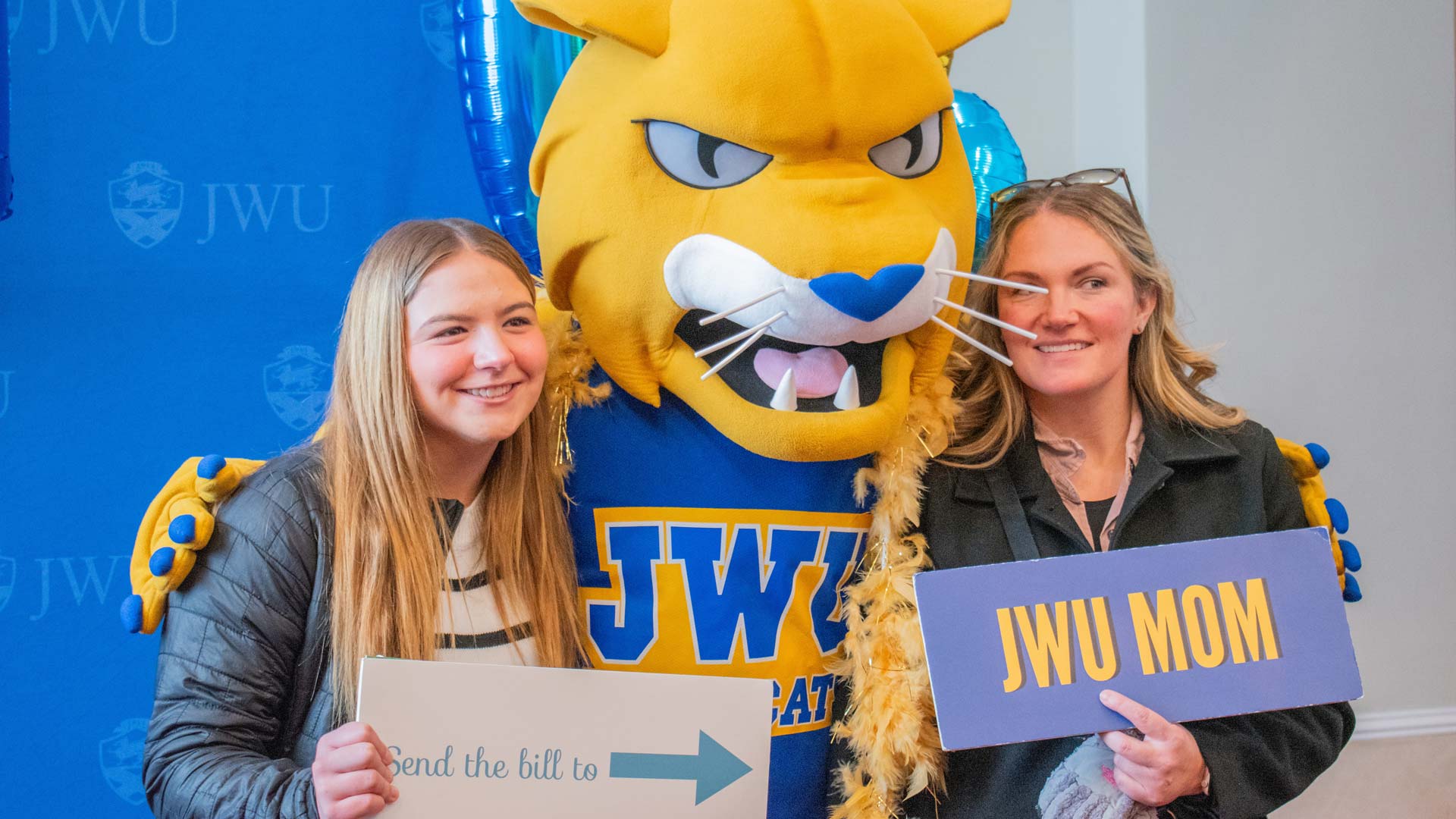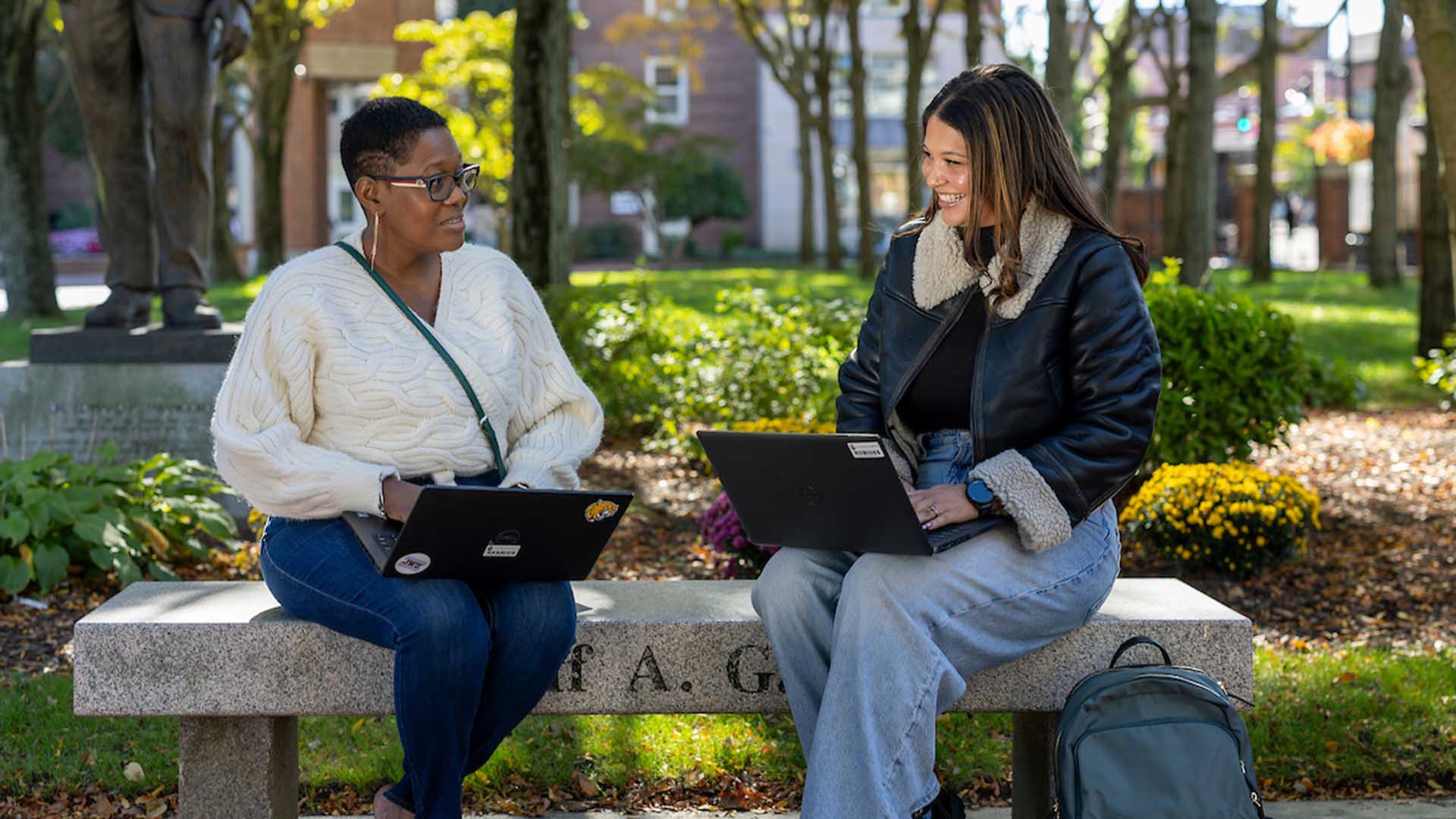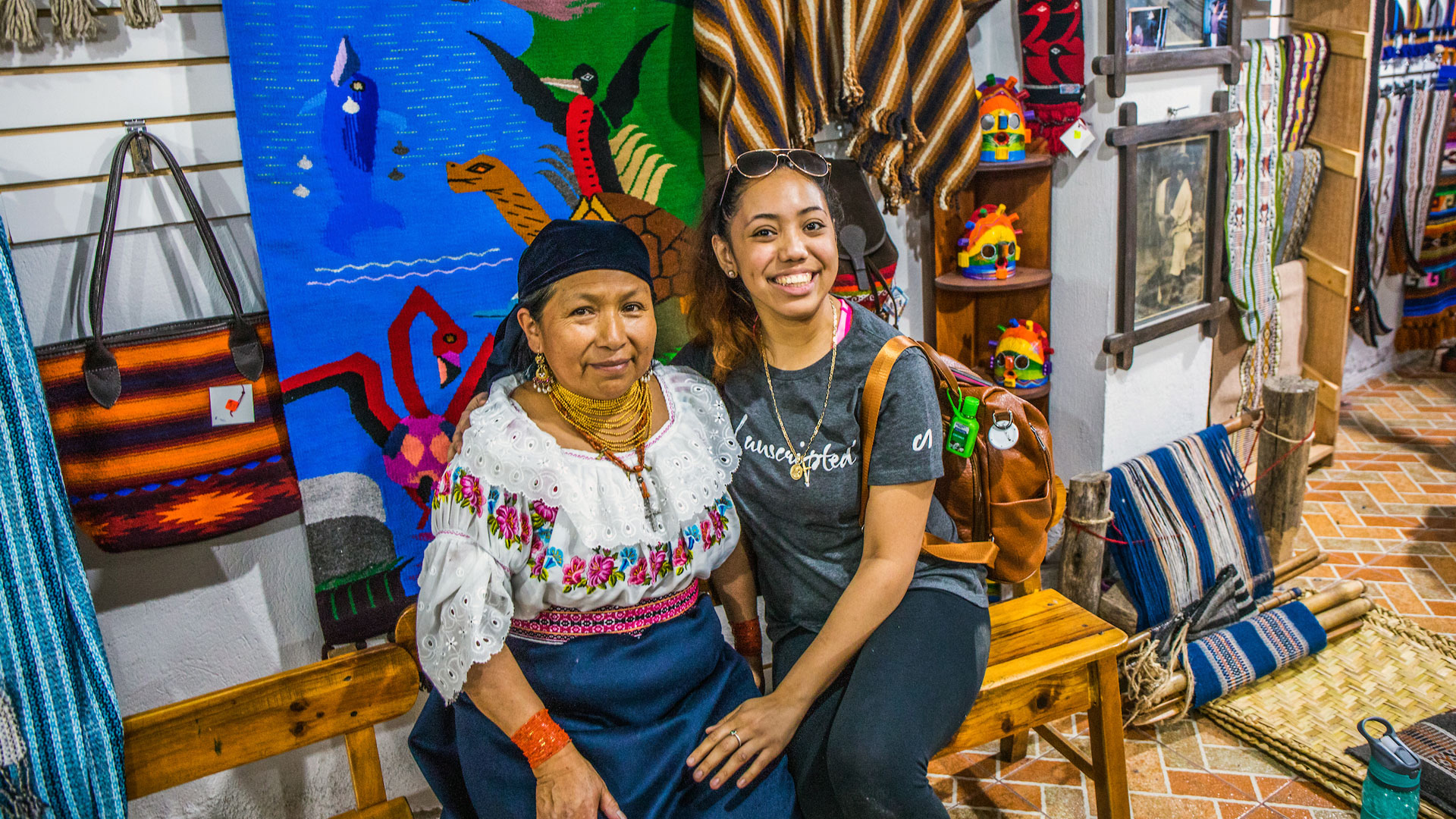‘Helping Different Kinds of Minds’: Temple Grandin Visits JWU Providence
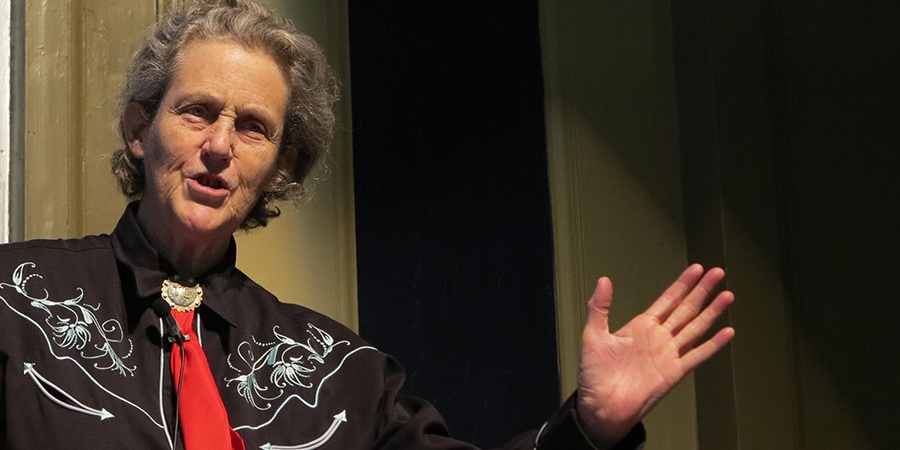
“Autism is an important part of who I am, but my career is my identity,” professor of animal science and autism activist Temple Grandin told students during JWU Providence's most recent Cultural Life Series lecture.
Grandin is perhaps the most well-known adult with autism in the world. At the age of 3 she was completely non-verbal, but Grandin's mother enrolled her in speech therapy and encouraged her to “stretch” herself by slowly stepping outside her comfort zone and focusing on areas of study and activities where she could excel.
“I'm a visual thinker," Grandin said. “I don't think in words, I think in pictures. And I thought everyone thought the same way I did. But people think differently, and you need both sides. I can visualize how an experiment is going to go, or how a piece of equipment is going to function in my head, but someone else is going to have to worry about the statistics.”
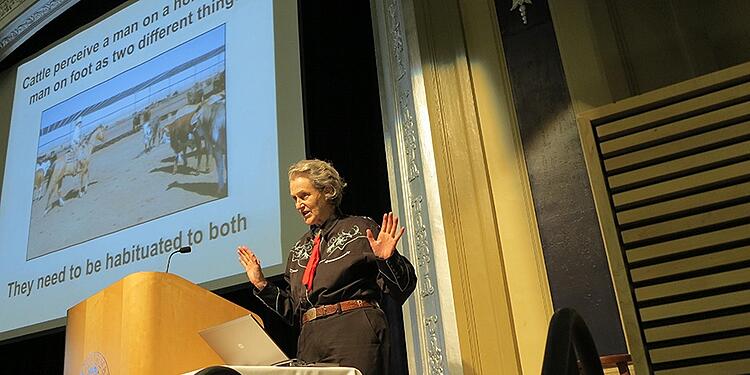
We need more people on the autism spectrum out in work force Grandin argues, primarily because of their unique perspectives. But unfortunately, because they have a difficult time understanding abstract or verbal concepts and school subjects (such as algebra), many children diagnosed with autism are screened out of classes where they could perform much better (such as geometry, a much more visual subject). This can completely alter not only their academic paths, but life paths.
“What would happen to Steve Jobs or Albert Einstein today?” Grandin asked the audience. Like Grandin, Einstein was non-verbal until the age of 3, and she believes Jobs had Asperger's, like many of the “geeky, nerdy kids” that end up working for tech companies in Silicon Valley, though neither were ever officially diagnosed with autism.
An autism diagnosis would have held these two men back, Grandin argues. “People get locked into words and labels,” she said. And these labels shift how people on the spectrum are viewed and treated. “The next great entrepreneur or inventor could end up a recluse [because they're labeled autistic],” she said.
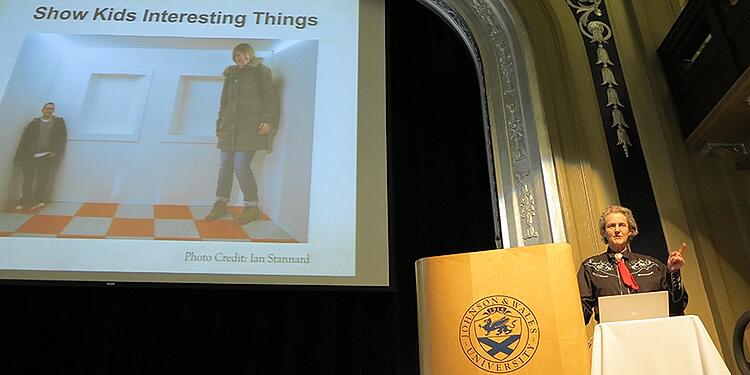
Grandin recommends exposing autistic children to hands-on activities, such as carpentry or model building. Not only are they more likely to enjoy these activities because of their sensory-based perception of the world, but the skills they can acquire are transferable to skilled trades which could lead to a potential career path. They also teach practical problem solving. “Hands-on [learning] is essential,” she stressed. “You need to touch to perceive. I'm concerned that too many kids are removed from the world of practical things.
“Art class saved me in high school. Horses and carpentry saved me. Learning how to work with my hands saved me,” Grandin said.
But she emphasizes that exposure is key. “Students get interested in stuff they're exposed to. You know how I decided I wanted to work with cattle? I was exposed to them!”
